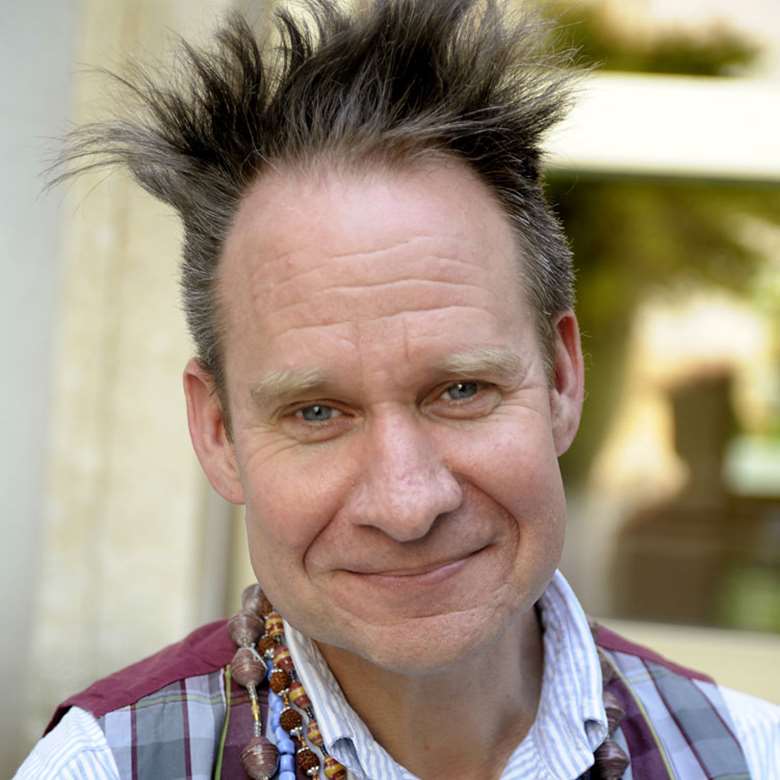Directing Handel, by Peter Sellars
Gramophone
Tuesday, February 28, 2017
'Handel possessed an outrageous sense of humour and a stunning sense of theatre...'

Handel is, for me, the greatest dramatic composer who ever lived, but not only because of the brilliance, the dazzle, the entertainment, the pomp, the magnificence, the special effects. He goes beyond that; he plumbs the depths of his characters by taking them to their breaking-point and beyond. Only Shakespeare takes his characters that far.
Handel possessed an outrageous sense of humour and a stunning sense of theatre; his operas are conceived on a musical and dramatic scale that’s Wagnerian, yet, due to financial constraints, were written for small casts. This is what links them to our time of economic meltdown; you can mount a major Handel work with a handful of people.
Handel also explores many of the themes that our world is living with today – the ruin of our cities, the sense of environmental devastation – and musically, he is constantly showing us the psychological grid of urban decay. After all, he and his audiences were right in the middle of ugly, nasty London. But there is also a sense that there is another way. So many of the second acts of his operas take you to scenes of ravishingly depicted woods and streams and skies, scenes that profoundly refresh the senses.
What’s extraordinary is that all the things that Handel stands for are the very opposite of the idea of the composer we inherited from the previous generation – the generation that told us that he was stuffy, morose, impossibly long-winded; even the great Handel scholar Winton Dean has no problem suggesting what must be cut, and what rearranged, and what’s quite impossible. Yet, in the 21st century we don’t feel any of it is impossible at all – in fact it’s all necessary.
I find Handel’s path to the oratorios fascinating. There’s no composer until Michael Jackson who achieved such a level of public visibility and who had a more brilliant and showy career. Unlike any composer before or since, Handel had an access to the ruling class that allowed him to draw these extraordinary portraits of people in power. And his musical gifts were such that he survived three successive administrations and remained the court composer across an incredible span of history. That’s extraordinary when you think how volatile politics were in those days. It was not like Obama saying: 'Let’s hire from both parties – I think I’ll include a few from the other side.'
So, for a man who was used to a level of glamour, who mingled with the rich and famous – and was one of them himself – for Handel to go in the direction of the rarefied spiritual atmosphere of Theodora is remarkable. Of course by the time he wrote Theodora at the end of his life he was nearly blind and moving into the next world, but you would never have seen it coming when he first arrived in London and knocked people out with Rinaldo. That’s one of the most marvellous things about him – the vast scope of his work.
But Handel’s move into oratorio was more than a statement of fashion or because his British aristocratic public was deserting him. There was change happening in England in the mid-18th century, which was the emergence of a new merchant class, and the idea that advanced classical music wasn’t just for aristocracy, but for a middle-class audience. Out of this comes Messiah, which is not only Handel’s great move into oratorio but one into a larger social concern. The Dublin performances were dedicated to prison and mental hospital reform: here was a man of deep humanitarian impulses that only strengthened when at last he didn’t have to deal with the fickle British public and the shallow theatre world.
Eighteenth-century English theatre, let’s face it, is all rather gossipy and trivial. Nothing is quite at the level of Greek drama. So what’s incredible is how Handel can meet Sophocles and Aeschyulus in England with his oratorios. He was part of a larger contemporary movement that asked: 'what will future democracy be like? How do we prepare for it?' He did this by elevating public discourse and literally inventing oratorio and that magnificent democratic structure, the English chorus. It is allied to Aristotelian rhetoric, the finest expression of one’s feelings – and that of course must be the basis for democracy. It’s absolutely visionary stuff.
Directing his work, I always have to put Handel in the context of modern drama. His great sense of scope and scale in his dramas, his intricate progressions, these are like Chekhovian characters saying, 'To Moscow! To Moscow!' and they do not go. These repeating, cyclical forms are what life is like. Things happen that you have no answer for, you meditate on it, you mull over it and go back over it again and again. So these forms are profound insights into the way life works and how our minds cope.











